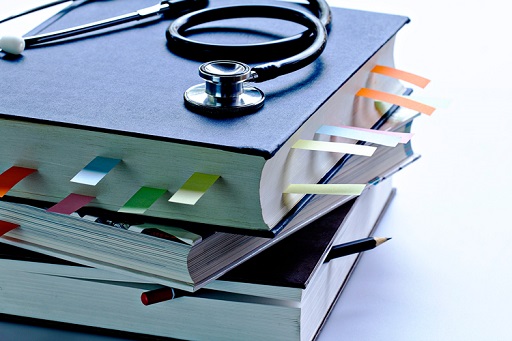PHYSIOLOGICAL ACTIONS OF ADRENALINE ::
Adrenaline is the principal secretion of the adrenal medulla of the suprarenal gland A minute trace of noradrenaline is also secreted along with it it produces a number of physiological effects on the body especially the cardio-vascular system
Cardio-vascular System ::
It increases the force (inotropic) and frequency (chronotropic) of the heart As a result the cardiac output is increased All minute blood vessels such as capillaries and arterioles are constricted except the coronary vessels and vessels supplying the skeletal muscles which are dilated Thus systolic blood pressure is increased but diastolic pressure falls a little The mean blood pressure is increased
Respiratory System ::
Bronchioles are relaxed and the mucus secretion is decreased by adrenaline Therefore it finds a therapeutic use in bronchial asthma With an increase in adrenaline level the respiration stops for a while in animals This is called Respiratory apnoea
Endocrine System ::
Anterior pituitary is stimulated so as to increase the ACTH and blood glucose level
Liver ::
Glycogen from the liver is converted into glucose by adrenaline
Blood ::
Adrenaline hastens blood coagulation Blood volume RBC total WBC count and Hb percentage are increased temporarily Adrenaline also produces splenic contraction Blood lactate is also increased whereas blood K+ level falls
Metabolism ::
Basal metabolism is raised RQ increases and glycogenolysis increases the blood glucose level Fat metabolism is stimulated to liberate free fatty acids
Skin ::
In humans adrenaline causes sweating but in animals sweating is a cholinergic phenomenon Adrenaline causes the hair to stand on the edge as a result of contraction of erector pilorum muscle fibres attached to the hair roots it is a nature s device to produce heat by erector - pili contractions thereby to combat cold
Smooth Muscles ::
Adrenaline produces contraction of gall bladder and sphincters of the gastrointestinal tract However secretion and movements are inhibited it increases thick salivary secretion Adrenaline contracts the spleen whereas urinary bladder relaxes and its sphincters constrict Pupil of the eye dilates and intraocular tension increases Uterine contraction is inhibited somewhat during labour and for a week thereafter
Noradrenaline ::
This is secreted in minute amount along with adrenaline It is mainly a neurotransmitter released from postganglionic sympathetic nerve endings Actions are similar to adrenaline however it differs in some respects Noradrenaline does not increase the heart rate but raises the blood pressure by acting on the minute blood vessels It raises both the systolic and diastolic pressure Unlike adrenaline it has no action on fat metabolism but blood sugar is slightly raised


0 Comments